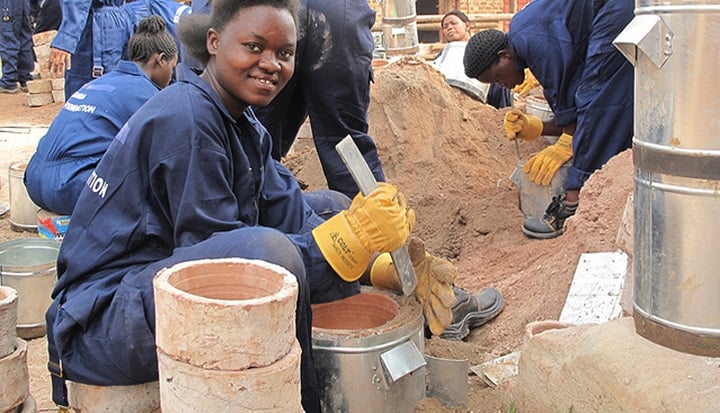Having worked in the local sustainable energy sector for the last seven years, I cannot stress enough how important it is to conduct both market and social impact research.
Yet most organisations tend to focus on one or the other.
Enterprises and charities founded in countries where they operate, especially when they are led by people from that country, clearly understand the local context very well. That sometimes means they underestimate the value that social impact research adds to marketing and scaling up their initiative, and they neglect to evaluate the social and economic impact of their venture on their customers or beneficiaries.
Take a solar lighting business serving the base of the pyramid customers. It might pay a lot of attention to continually assessing the market, researching its competitors and their products, finding the right price point for their own and considering the ever-changing financial viability and sustainability of their business model.
But if it doesn’t use hard numbers to prove the specific impact of its lights on respiratory illnesses and other health conditions, children’s education or women’s income generation, it won’t make a strong development case and help increase the impact of the intervention by attracting more funders and investors.
On the other hand, organisations that operate at an international level, across different countries, and many of which are based in the West, have a poorer understanding of the local context. They tend to compensate by emphasising the social impact research angle to find the most effective way of addressing a specific development issue, in addition to doing market research. This helps provide the information they need to leverage funding and investment.
Being able to differentiate between how a light is used in a Sudanese refugee camp to keep small shops open after dark, in a slum outside Nairobi, Kenya, to increase safety and security for girls, or in a village in Rwanda to enable child heads of households to study at night, helps organisations market their product and expand quickly into different countries.
Ashden promotes sustainable energy and all the life-changing benefits that it brings. Through our annual green energy awards we have rewarded more than 150 sustainable energy enterprises to date. Our experience shows that organisations that do both market and social impact research are able to achieve significant scale and expand their business or programme more quickly.
Two of our 2013 International Award winners demonstrate this. SolarAid is a solar lighting charity working to eliminate the kerosene lamp from Africa and selling lights to poor people through its trading subsidiary, SunnyMoney. US-based non-profit, Impact Carbon, works with small businesses selling life-saving technologies like clean cookstoves and water treatment systems to access carbon finance, grow their markets and make their products more affordable and accessible to the consumers.
Both prioritise social impact research and randomised control trials. For example, they are looking into the effect of renewable lighting and improved cookstoves on maternal and child health, children’s academic performance and the income of families. By doing so, they are able to clearly demonstrate their positive impact on people’s lives and use the information they collect to continually innovate in the design of their products and services as well as in their delivery and distribution models. This keeps things relevant, by being able to constantly adapt to the needs of the local situation and the market.
Doing this research means that both charities are able to prove that their business model works well in a particular context and can be replicated elsewhere, with ongoing market and social impact research. The lessons from each initiative feed into the organisation’s larger network of ventures, enabling them to share resources and learning with each other and achieve better results at a faster pace. Consequently, they gain greater visibility and increased access to finance, which empowers them to scale up.
The results speak for themselves. SolarAid is growing impressively, having sold 669,500 lights since 2008 and now benefitting over three million people in Africa. Since 2006, Impact Carbon has built programs that have supported the distribution of over 370,000 improved stoves and 3,000 water treatment devices, reaching more than 3.3 million people to date.
But don’t take my word for it, come and join us to debate the role of market and social impact research for organisations tomorrow – Thursday 24th October at 3.30pm.










